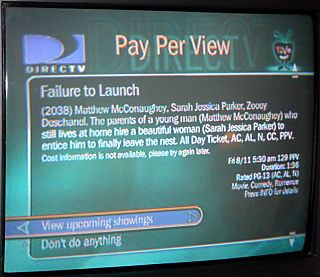 We’re at a pretty pivotal time in the entertainment industry right now. For the longest time, the industry – and that includes music, books, movies, TV, what have you – has been rooted to a business model where they acquire content, strategize on how to maximize exploitation of it, and then they set the price and availability for consumers on their terms. But as it turns out, much like our fossil-fueled industrialization, this was a myopic worldview and now circumstances beyond their control (technology) have ripped the power from corporations back into the hand of the consumers. The problem is consumers also have the power to decide how much they’re going to pay and, predictably, many are going for the five-finger discount, hence the gigs and gigs of copyrighted books, comics, TV, music, and movies that awaits any individual savvy enough to install a torrent program on their PC.
We’re at a pretty pivotal time in the entertainment industry right now. For the longest time, the industry – and that includes music, books, movies, TV, what have you – has been rooted to a business model where they acquire content, strategize on how to maximize exploitation of it, and then they set the price and availability for consumers on their terms. But as it turns out, much like our fossil-fueled industrialization, this was a myopic worldview and now circumstances beyond their control (technology) have ripped the power from corporations back into the hand of the consumers. The problem is consumers also have the power to decide how much they’re going to pay and, predictably, many are going for the five-finger discount, hence the gigs and gigs of copyrighted books, comics, TV, music, and movies that awaits any individual savvy enough to install a torrent program on their PC.
But I come not to lecture or debate moral issues. That’d be much like debating the morality of the sun rising and setting. This has now become an inescapable force of nature, and the only questions are A) Will you adapt? and B) How will you adapt? For the movie biz, studios seem to be taking a “throw shit against the wall and see what sticks” approach, and so we have inadequate studio-endorsed download services, vigorous, yet useless anti-pirating measures/print watermarks, and various other gimmicks like the return of digital 3-D and HD-DVD. But just like Steve Jobs did with iTunes and iPods, it appears that someone outside of the film biz is going to be the one to take the lead in breaking the greatest taboo: putting out major theatrical films on TV the same day they’re available in theaters.
Notice I used the qualifier “major.” If you’ve been paying attention, you know that a few tiny films have tried this already such as Steven Soderbergh’s Bubble or the recent Paul Rudd-starrer Diggers. Now, Comcast is in discussions with several studios for doing major mainstream releases this way. Steve Burke, the CEO for Comcast, imagines that they would have a sort of prestige pricing model where these would be treated like WWE or UFC PPV events charging $30-50 for the privilege for watching, say, Spider-Man 3 in the comfort of your home the same day it hits theaters instead of the typical $3.99 for typical PPV movies. This makes sense as you’re no longer charging for individual ticket sales and these are price points that many consumers already willingly pay. The problem is that theater owners are understandably afraid of this cutting into their bottom line and they wield a mighty bit of influence just as Comcast does.
But as I have said here before, the quickest, most sensible, and probably most inexpensive and immediate fix for theatrical woes is for theater owners to go back to the drawing board and invest in dramatically improving the theatrical experience. Sure it’s a luxury for consumers to be able to watch films at will. But it’s just as much if not moreso of a luxury to be able to have a dependably nice night out at the movies with the family watching a screen that towers over even the mightiest home theater with state-of-the-art sound manned by an experienced and trained projectionist amidst a monitored crowd that is compelled to behave. That means investing in employee training, paying people decently to avoid the rapid teen turnover that currently plagues theater employees, having active ushers at every single screening and re-dedicating yourself to making theatrical movies fun again. Downloading is here to stay, and no amount of gimmicks or third-party OnDemand schemes will significantly erode that, much as iTunes alone can’t be the savior of the music industry. Make no mistake…the current business model will have to change, and a range of options must be provided for people. But ignoring that the bread-and-butter has gotten pretty stale and moldy is a sure sign that these guys just don’t get it yet.